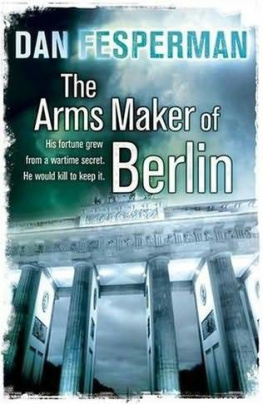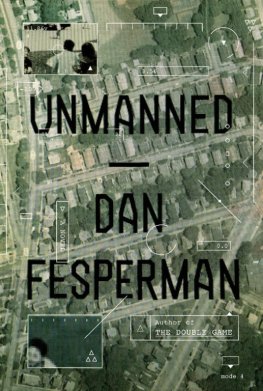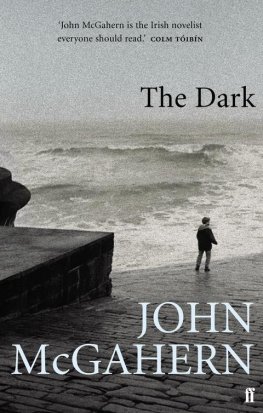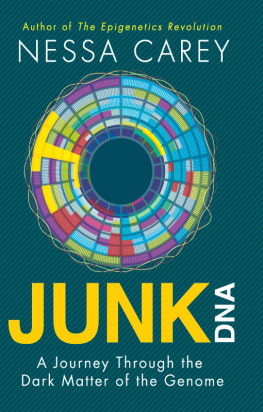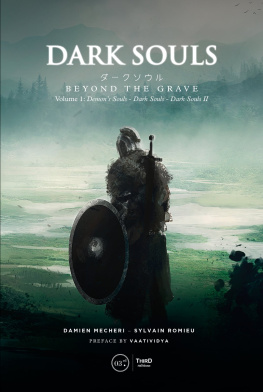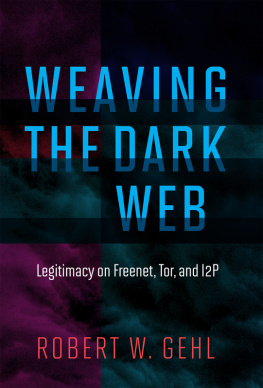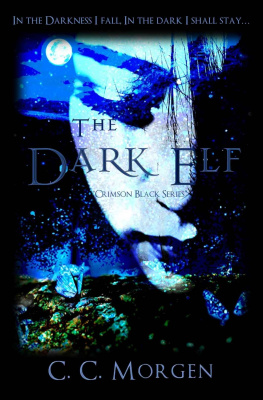Dan Fesperman - Lie in the Dark
Here you can read online Dan Fesperman - Lie in the Dark full text of the book (entire story) in english for free. Download pdf and epub, get meaning, cover and reviews about this ebook. genre: Detective and thriller. Description of the work, (preface) as well as reviews are available. Best literature library LitArk.com created for fans of good reading and offers a wide selection of genres:
Romance novel
Science fiction
Adventure
Detective
Science
History
Home and family
Prose
Art
Politics
Computer
Non-fiction
Religion
Business
Children
Humor
Choose a favorite category and find really read worthwhile books. Enjoy immersion in the world of imagination, feel the emotions of the characters or learn something new for yourself, make an fascinating discovery.

- Book:Lie in the Dark
- Author:
- Genre:
- Rating:4 / 5
- Favourites:Add to favourites
- Your mark:
- 80
- 1
- 2
- 3
- 4
- 5
Lie in the Dark: summary, description and annotation
We offer to read an annotation, description, summary or preface (depends on what the author of the book "Lie in the Dark" wrote himself). If you haven't found the necessary information about the book — write in the comments, we will try to find it.
Lie in the Dark — read online for free the complete book (whole text) full work
Below is the text of the book, divided by pages. System saving the place of the last page read, allows you to conveniently read the book "Lie in the Dark" online for free, without having to search again every time where you left off. Put a bookmark, and you can go to the page where you finished reading at any time.
Font size:
Interval:
Bookmark:
Dan Fesperman
Lie in the Dark
CHAPTER 1
He began the day, as always, by counting the gravediggers out his front window. There were nine this morning, moving through the snow a hundred yards away in the middle of what used to be a childrens soccer field. They stopped to light cigarettes, heads bowed like mourners, the shadows of stubble faintly visible on hollowed cheeks. Then they shed their thin coats and moved apart in a ragged line. Backs bent, they began stabbing at the ground with picks and shovels.
They moved slowly at first, working the cold and sleepiness out of creaky joints. But Vlado Petric was in no hurry. Hed watched often enough to know what came next.
Soon brown gashes of mud would take shape at their feet. Then, as the men warmed to their task, the gashes would expand into neat rectangles, and as the rectangles deepened the gravediggers would disappear into the earth. Within an hour only their heads would be visible. Then Vlado would leave his apartment to walk to work through the streets of Sarajevo.
Vlado had come to depend on the gravediggers punctuality. He knew they liked to finish early, while the snipers and artillery crews of the surrounding hills were still asleep in the mist, groggy from another night in the mud with their plum brandy. By midmorning the gunners would also be stretching muscles and lighting cigarettes. Then they, too, would bend to their work, and from then until nightfall the soccer field would be safe only for the dead.
Vlado wondered sometimes why he still bothered to watch this morning ritual, yet he found its arithmetic irresistible. It was his daily census of the war. As the holes took shape they totted up the days account like the black beads of an abacus. Large crowds inevitably followed a day of heavy shelling, or one of the sad little hillside offensives that rattled distantly like a broken toy. On one busy morning hed counted thirty-four men at work, checking twice to make sure as they weaved and crossed, dirt flying as if from a series of small explosions. The vapors rising from their sweat and cigarettes had poured into the sky like the smoke of a small factory.
Lately, however, there had been layoffs and shorter hours. Todays crew of nine rendered a judgment of poor aim and low ammunition on the previous day. In winter the war always lost steam.
One might also call Vlados interest professional. Sometimes his own workday took shape out on the field, in graves for those claimed not by snipers, explosions, illness, or old age. Vlado was a homicide investigator for the local police, and still gainfully if ponderously employed.
It was an occupation good for a few bitter laughs with friends, amused to find small-time killing still worthy of attention after twenty-one months of war. To them, Vlados task was that of a plumber fixing leaky toilets in the middle of a flood, an auto mechanic patching tires while the engine burned to a cinder. Why bother, they would ask. Why not just leave it all until the end of the war. By then all your suspects will be dead anyway.
Invariably he would reply with a muttering chuckle, eyes lowered, in the time-honored humility of all who must answer for making their living from the dead. Then he would allow as how, yes, they were probably right. What a fool he was. Laughs all around. Have another one on me, gentlemen.
So they would drink to his folly, someones bottle of rancid home-brew passed from hand to hand, and then they would move on to other subjects-soccer, or women, or the war. Always, eventually, the war. But he would linger a moment with his thoughts. No, they were not right at all, he would reassure himself. The same two motivations which had kept him going before the war could still sustain him. Or at least he hoped they could.
One was the small, slender promise that beckons to all homicide detectives-that someday, something worthy and noble would come of his work. For the clever and the persistent, perhaps something larger lurked behind the daily body count. In the way that an epidemiologist knows that a single autopsy can provide the key to a pandemic, Vlado clung to a belief that, now and then, one murder offered a portal to machinations far greater than the pulling of a trigger or the plunging of a blade.
But could this still be true in wartime? And here the doubts threatened to stop him cold, so he hastily moved on to reason number two-the puzzle of motive, diagramming the inner levers and flywheels driving the machinery of rage. Here again, the war had muddled the calculations. Now the mechanisms all seemed increasingly predictable, guided by remote control from the big guns in the hills. Each act shook to their reverberations. Every moment of passion sprang from two years of misery.
Yet Vlado couldnt help but marvel at the enduring popularity of murder. He knew from his history texts what war was supposed to do to people. In Stalingrad they ate rats and burned furniture to stay warm, but they stuck together. Even in London, fat and soft London, suicides dropped and mental health soared. But now he wondered if it hadnt all been some great warm lie of wartime propaganda. Because, if anything, people succumbed more easily now to the passions that had always done them in. And as the siege grumbled on, spurned lovers still shot each other naked and dead, drunks stabbed other drunks for a bottle, and gamblers died as ever for their debts.
The opportunities for such killings had never been richer.
There were weapons everywhere-battered models from Iran and Afghanistan with ammunition clips curling like bananas, sleek Belgian automatics from the tidy gunshops of Switzerland, ancient and hulking old Tommies from God-knows-where, and every cheap Kalashnikov ripoff ever made in the Eastern Bloc. The hills of old Yugoslavia had been overrun at last by the arms of the Warsaw Pact in a way the late, great Tito had never envisioned.
In moments when the war lagged, full employment for these weapons was guaranteed by the smugglers and black marketeers, too numerous to count. They darted about in their own war of attrition, the cheated in vengeful pursuit of the cheating. And with nowhere to run but the deadly noose of the hills, the chase was usually short and decisive.
Even when both of Vlados reasons for justifying continued employment faltered, he had a worthy fallback: The job kept him out of the army. It was no small accomplishment these days, when even young boys in muddy jeans and flannel shirts trooped uphill nightly to the front.
That was the thought that always dragged him from his window on his blackest mornings, out onto the walkway of the dreary block of flats perched above the soccer field.
Had the gravediggers ever paused to gaze back on these mornings, they would have made out the thin shape of a man in his early thirties, draped in dark clothes. Slender to begin with, Vlado had been further narrowed by the diet of wartime until his deep brown eyes were almost spectral in their sockets. A face once quick to smile was now guarded, uncertain. A small crease above the bridge of his nose had deepened and dug in, setting itself up as the new, solemn master of the laugh lines crinkling around his eyes. His black hair was stiff, clipped short and uneven by his own hand with a blunt pair of childrens scissors, receding ever more rapidly at the crown and temples. The only holdover from before the war was his voice, flowing out deep and soft, still the comfortable sort of baritone that beckons one into a warm, smoky room of old friends.
Behind him, in the small living room and kitchen, was all that remained of Vlados prewar world. For more than a year and a half his wife and daughter had been gone, evacuated to Germany. The door to his daughters room hadnt been opened for weeks, nor had the door to his and his wifes old bedroom. He had gradually drawn his possessions and his existence together, partly because it kept him away from the windows more exposed to sniper and artillery fire, and partly to conserve the precious light and heat from his illegal gas hookups, which burned fitfully and low under dwindling pressure. But it was also his way of burrowing in for the duration, of tending his own weak flame against the forces that could blow it out.
Font size:
Interval:
Bookmark:
Similar books «Lie in the Dark»
Look at similar books to Lie in the Dark. We have selected literature similar in name and meaning in the hope of providing readers with more options to find new, interesting, not yet read works.
Discussion, reviews of the book Lie in the Dark and just readers' own opinions. Leave your comments, write what you think about the work, its meaning or the main characters. Specify what exactly you liked and what you didn't like, and why you think so.

